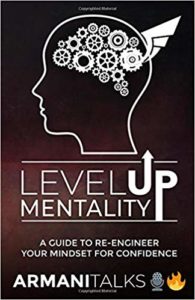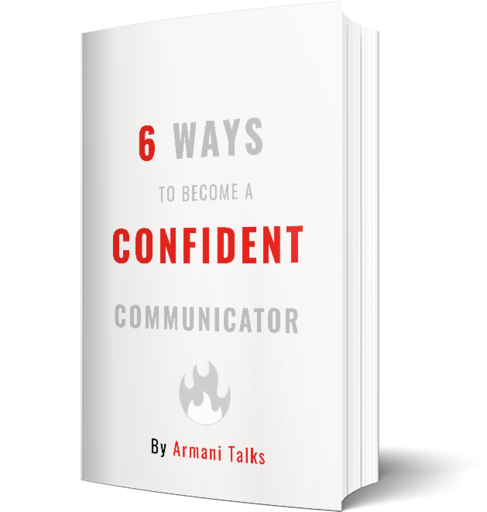Werner Herzog’s #1 Filmmaking Advice
Werner Herzog is a prolific German filmmaker.
A couple of his works include:
- Grizzly Man
- Cave of Forgotten Dreams
- The Wrath of God
Whenever he is asked to give some advice to upcoming filmmakers, he says the following:
‘Read, read, read.’
His response has become a meme within the filmmaking community.
Werner ends with:
‘If you don’t read, then you will never be a great filmmaker.’
The interviewer is baffled.
Shouldn’t Werner be responding with:
‘Watch, watch, watch.’
A filmmaker is making a MOVIE, not writing a book.
So, why is Werner’s #1 advice for filmmakers to read more?
The Value of Reading
Werner barely watches any film.
He says he watches 3 films a year.
3??
That’s it?
I thought he was going to say 3 a week.
Nope.
3 a year.
He reads a ton.
His reading ranges from philosophy to poetry, to fiction and more.
The reason he sees value in reading is because it allows him to exercise his imagination.
What is a movie really?
It’s a story.
But think about it on a practical level.
What is it?
It’s a bunch of actors reading a script.
READING a script.
A movie in its infancy stages is a collection of words.
The more Werner reads, the more he knows how to set the stage for a riveting film.
Werner reads in order to sharpen his imagination.
Active vs Passive Consumption
Martin Scorsese is the opposite of Werner Herzog.
Martin sometimes watches 3 movies a day.
The more films he watches, the more he is able to build visual literacy.
Werner’s strategy is an outlier among filmmakers.
Many filmmakers will talk about the value of reading, but they won’t prioritize it to the level that Werner does.
Who is right, Martin Scorsese or Werner Herzog?
The answer is:
- Both!
There are 2 types of consumption, active and passive.
Reading is an active form of consumption because the brain is being forced to turn words into images.
The brain is given more leeway to connect the dots as it pleases.
Since reading is more active, it works out the imagination faculty of the brain.
Watching is more passive.
The reason why is because you sit back and watch someone else’s imagination.
Don’t let the word “passive” fool you.
Passive does not imply weakness.
Being able to consume the imagination of someone else is a great way to develop your own imagination.
Werner’s strategy emphasizes the active, while Martin’s strategy emphasizes the passive.
Read Wide, Wide, Wide
Whenever Werner is asked what he reads, I have never heard him bring up filmmaking books.
His reading is diverse.
Having a diverse reading catalog builds storytelling prowess.
Whenever I see a great storyteller, I ask them what they read.
They’ll respond with an unpredictable selection:
‘I just read the founder of Domino’s autobiography. Before that, I read a book on sex. Before that, I read Harry Potter.’
Huh??
Where is the theme?
The theme is hard to detect from the external world.
We only see a wide selection of books.
However, the theme is crystal clear from the storyteller’s internal world.
The storyteller is using their curiosity as a compass.
The Value of Curiosity-Based Reading
In middle school, we had a segment of our day called, D.E.A.R.
- Drop everything and read.
The teacher never told us what to read.
They’d let us exercise our own judgment.
Some students bought the Hardy Boys.
Other students bought newspapers.
And other students bought comics.
Why didn’t our school just make us read textbooks?
Because we were reading textbooks all day!!
They experimented with letting us use our curiosity.
This is a concept known as free reading.
The experiment paid off!!
After D.E.A.R., we’d share something that we learned.
It’d be easy to assume that we didn’t learn much because some of the kids were reading comic books.
Not true!
The kids were sharing tons of knowledge about building suspense, how to use humor, and some fun facts.
The teachers were amazed.
When we read what we were curious about, our retention rates skyrocketed.
Slowly Begin Challenging Yourself
Whenever someone checks out my book library, they see no theme.
They don’t need to be able to see it.
The only theme I follow is the one from within.
I follow my curiosity.
Werner emphasizes following one’s curiosity when developing a love for reading.
But don’t let curiosity make you lazy.
Someone can read tweets all day and say, “I’m reading!”
No hate against tweets.
I have a Twitter account myself; you should follow me.
But Werner suggests that you challenge yourself.
Experiment with long-form content.
Finish a book cover to cover.
The more you challenge yourself with thoughtful books over time, the more you’ll develop a feel for a good story.
It’ll be easier to create detailed worlds, nuanced characters, and riveting plots.
Curiosity will allow you to enter the world of reading.
After entering the world, expand.
Go beyond your comfort zone.
Once you finish one large book, you’ll have more confidence to make reading a part of your lifestyle.
What Film and Books Have in Common
A newbie focuses too much on the medium.
When they see films and books, they only think about the difference.
But a vet focuses on the message.
What do film and books have in common?
The story.
A narrative.
Watching movies can be a great hobby if you want to be a filmmaker.
Don’t only stop at watching though (aka passive consumption).
Invite active consumption as well.
Read, read, read.
The more you read, the more you will:
- Enhance articulation skills.
- Boost concentration skills.
- Enhance the signal of the mind and reduce the noise.
- Generate inspiration on command.
Werner Herzog has been a relevant filmmaker for the past 3 decades.
His advice has always been simple and to the point.
- Read more.
- Read wide.
- And read consistently.
If you follow his advice, you are guaranteed to improve your storytelling skills.






